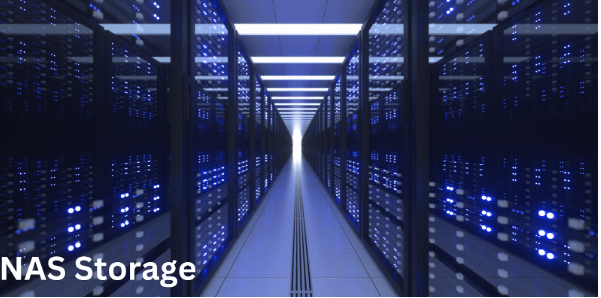Understanding the different types of NAS Storage solutions available.

Introduction:
Network Attached Storage (NAS) systems are becoming increasingly popular for home and business use. NAS storage solutions offer a reliable and secure method of storing data, as well as providing access to that data from virtually any device with an internet connection. But with so many types of NAS storage available, how do you know which one is right for your needs? Let's take a look at the different types of NAS systems on the market.
Types of NAS Systems
Single drive unit
The most basic type of Network Attached Storage system is a single drive unit. This type of NAS system will only contain a single hard drive and can provide up to 4TB of data storage capacity. However, due to the limited number of drives in this type of system, it is not suitable for large-scale data storage needs. It also lacks advanced features such as RAID or redundancy protection.
Multi-drive unit
A multi-drive unit consists of multiple hard drives that are housed in the same enclosure. The advantage here is that you can store more data than a single-drive unit and also configure it in various ways depending on your needs. For example, some multi-drive units allow you to set up RAID configurations for redundancy protection or even use multiple drives as one larger logical volume for increased performance and capacity.
Diskless NAS Storage System
The diskless NAS system is an entry-level solution that provides basic features such as file sharing, media streaming, and backup capabilities. It uses plug-and-play technology so you don't need to install any drivers or additional software—just plug in your disks and you're ready to go! The largest benefit of this type of system is its affordability; however, it does lack advanced features such as server virtualization and disaster recovery capabilities.
RAID Array Storage System
A RAID array storage system is designed for businesses that require fast performance and high reliability. This type of system consists of multiple hard drives which are configured together in a RAID array for added protection against data loss. A RAID array also offers higher levels of performance than traditional single drive systems due to its ability to write data across multiple drives at once. While RAID arrays do cost more than diskless solutions, they provide increased redundancy and faster read/write speeds which can make them worth the extra cost for some businesses.
Cloud Storage System
A cloud storage system offers many benefits over traditional on-premise solutions such as scalability, flexibility, cost savings, and enhanced security features. Cloud storage systems allow users to store large amounts of data on remote servers which can then be accessed from anywhere with an internet connection. While cloud solutions do require an upfront investment in hardware and software costs, they offer long term savings by eliminating the need for expensive local infrastructure while providing offsite backups in case of disasters or hardware failures.
Conclusion:
With so many options available when it comes to choosing a Network Attached Storage system, it can be difficult to decide which one is right for your needs. By understanding the different types available, however, you can find the perfect solution that meets all your requirements while still being cost-effective. Whether you're looking for simple file sharing capabilities or full enterprise-level features, there's sure to be a NAS system out there that fits the bill!